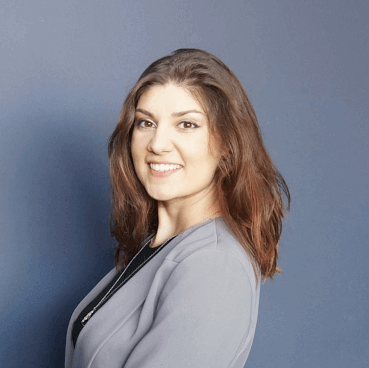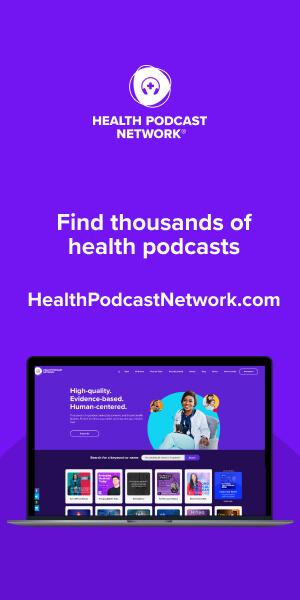AR, VR as changemakers for physician training and the importance of infusing our own values in medical decisions.
Q1: What role do digital health technologies play in helping us get the medical care that we need?
Archelle: Digital technologies make healthcare accessible at the moment when you need it most. If healthcare is available at that point, that’s what makes digital technologies so important. The other important aspect of digital health is that it can be personalized. It’s like a little bit of armor. When you’re in a healthcare situation, you’re overwhelmed by learning new things. Sometimes, it’s not good news… Digital technology provides an outlet to get information which is so important. However, there are always unintended consequences – I always worry about that.
Q2: Where do you stand on the concern about digital technology being damaging to our health?
Archelle: I think that digital technology ultimately will make healthcare better. At the same time, I do think that there are some consequences that we need to be aware of. I’m going to put my biggest concern at the top of the list: there is so much focus on designing digital technology that provides immediate answers that we are eliminating the time and space for people to deliberate. Digital technology just spoon feeds you an answer. In this world of immediacy, we’ve become so focused on short-term action. But, there is no shortcut you can take to contemplation. Patients and clinicians need to weigh the risks and benefits of the trade-offs. I worry that digital health technology is going to take out the process of deliberation… and that puts people at risk for regret.
Q3: What are your views on the next digital technology that will change the healthcare landscape?
Archelle: I think that you can’t answer a question like this without mentioning artificial intelligence. But, in addition to AI, I’m keeping my eye on augmented reality. AR and VR help not only in physician training but can change how patients understand their health care options and help them set realistic expectations. I am on the External Advisory Board at the University of Illinois, Department of Bioengineering. I went through their state of the art simulation center where medical students are learning how to do everything from delivering a baby to doing surgery on robots rather than practicing on a live person. And that is so important! At the University of Minnesota, one of the graduate students I worked with focused on using VR to teach diabetics how to self-inject insulin. Think about that – you get this diagnosis, and the data shows that unless you have good learning and teaching in the early weeks of that diagnosis, you just don’t administer right. VR can help change this.
Q4: In your book, you discuss how important it is for us to take an active part in our healthcare. Why is your methodology so crucial? How does it empower patients and getting the care about the quality here?
Archelle: Americans make 33,000 decisions a day, but when it comes to healthcare, they take a backseat. The more serious the medical condition is, the more we tend to retreat and say – ‘Doctor, what would you choose?’ Here’s the problem with that – doctors are trained to know the math, science, the biology, and the treatment alternatives. But patients are the expert in their own preferences, priorities, and values. These are just as important and must be infused into the medical decision. When you are not an active participant, you leave the doctors with no choice but to make decisions for you using their own values. Their values are fine – for them; but they are not right for you. If you don’t infuse your opinion and your values, if you don’t have a voice in your own care, you’re going to get care that you don’t want.
The CARES model – understand your Condition, know your Alternatives, Respect your preferences, Evaluate your options, and Start taking action – is a method that people can learn to use in any situation. It’s not just for people with chronic illness. This is a methodology for having an intelligent voice in minor and serious care decisions.
Lightning Round
1. What is a quote that motivates you?
“You’ll miss 100% of the shots you didn’t take” – Wayne Gretzky
2. What is what book would you recommend to our listeners?
The Discipline of Market Leaders by Michael Treacy, because I think that too many companies try to be too many things. While you have to do all of these, you have to focus. You can only excel in either innovation, customer service, or cost.
3. What advice do you have for others working to innovate in healthcare and even for young professionals like myself?
Don’t focus on what you want to be. Focus on what you want to accomplish. Then navigate your career by taking the next most logical, adjacent opportunity. When I was a practicing physician, I never imagined that I would be doing what I do today. I just kept an open mind. I always wanted to be an advocate for patients. I went from being a practicing physician to being a medical director to being a Chief Medical Officer, and I just keep expanding. Who would have ever thought that I would teach anatomy and physiology to MBA students or be on TV? I mean, sometimes we think too much about what title we want and not enough about how we want to impact to the world.
4. What’s the best tech that makes your life better and easier?
THE SCALE! Science says that using a scale gives us a chance of staying at a normal BMI because it is a way to keep yourself accountable.
5. If I give you a check for $5 million, what technology would you invest in?
I would use that to support building a technology that can be used to teach children about how their bodies work. I think we start way too late in trying to educate people about why they should care about their health. You can’t start caring at age 40. It has to be while you’re young. Statistics show that less than 50% of Americans know where their major organs are. Only 52% of people know where their heart is and only 27% of people know where their lungs are. How can you take care of yourself if you don’t even know where your major body organs are? And, by the way, health literacy doesn’t improve with the level of education. The students in my MBA classes are no better than the general population when it comes to health literacy. I believe that knowing how your body works and becoming health literate is something that should be a part of the K-12 curriculum, just like math and science.





